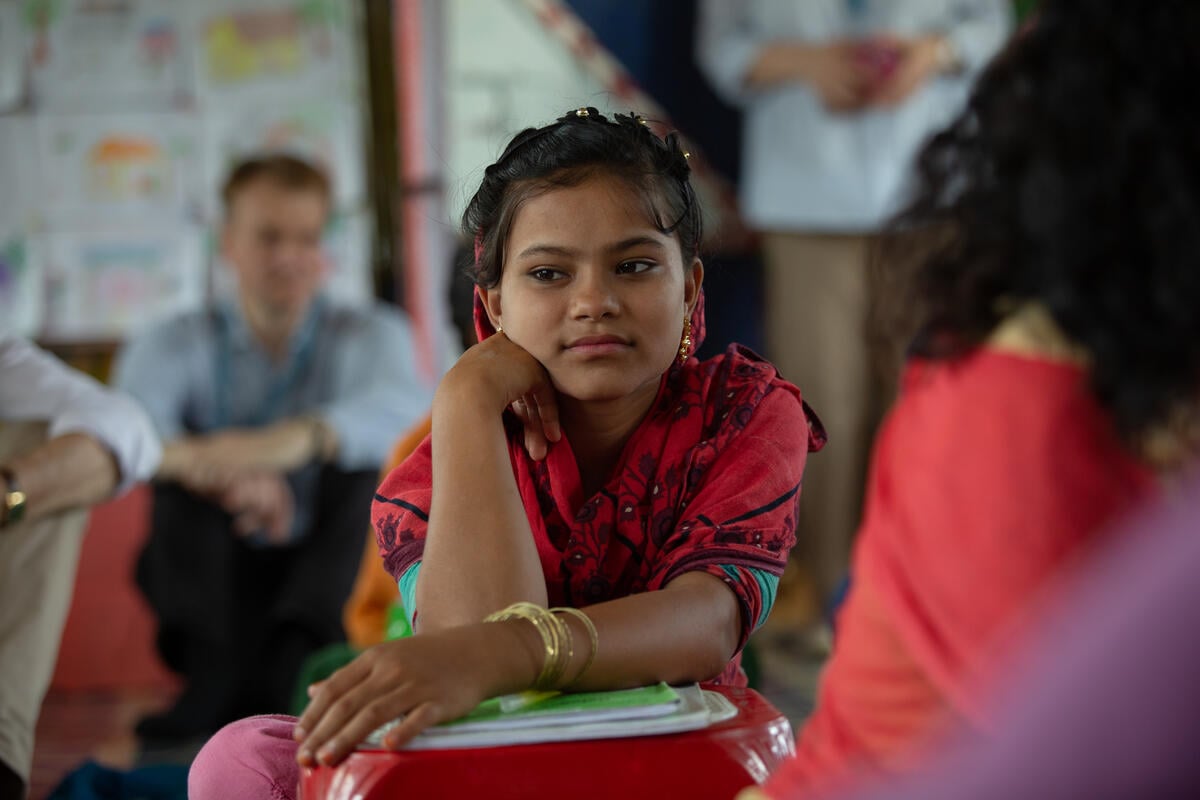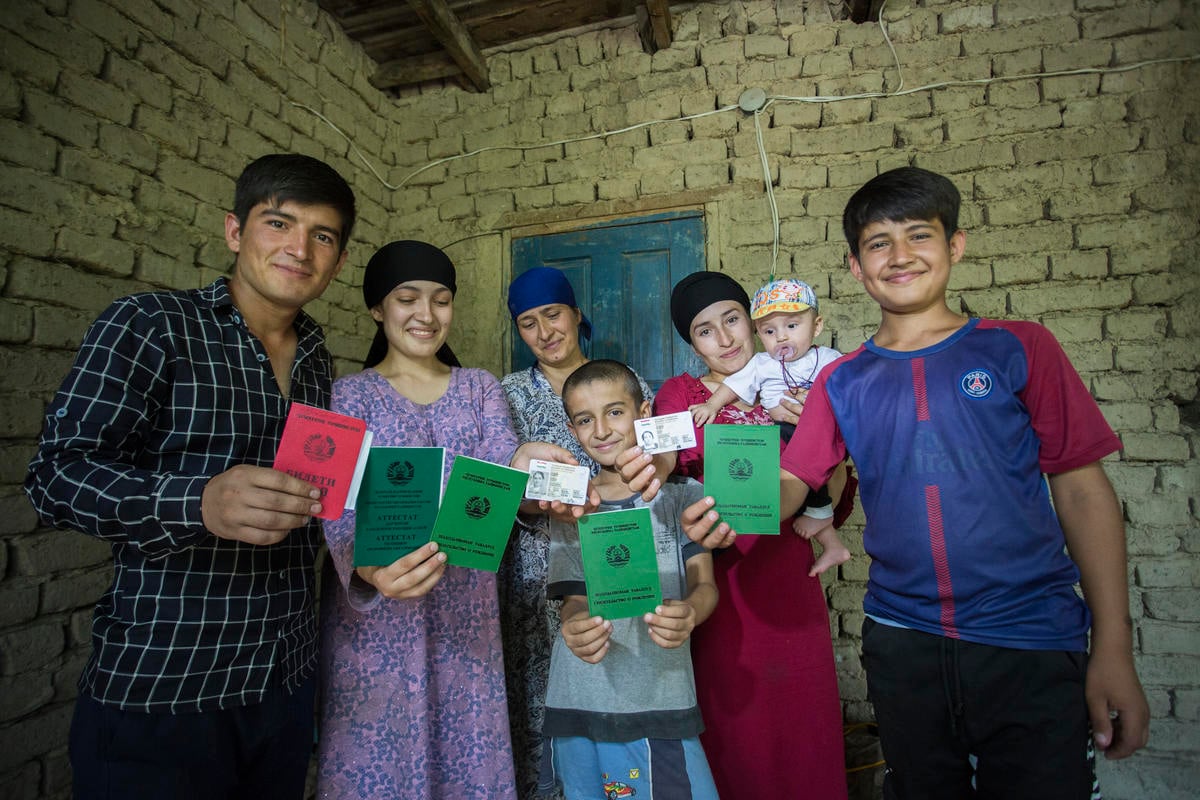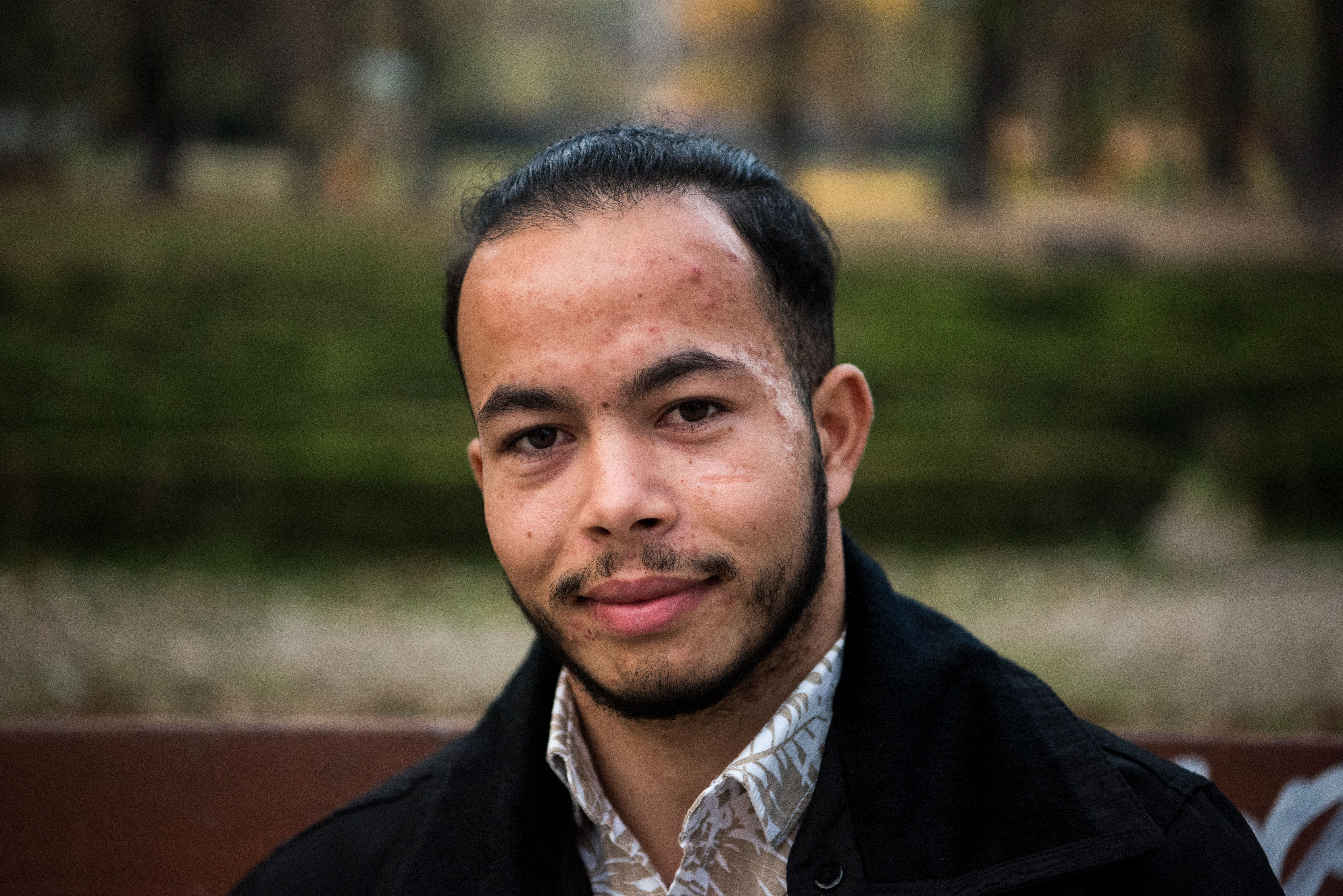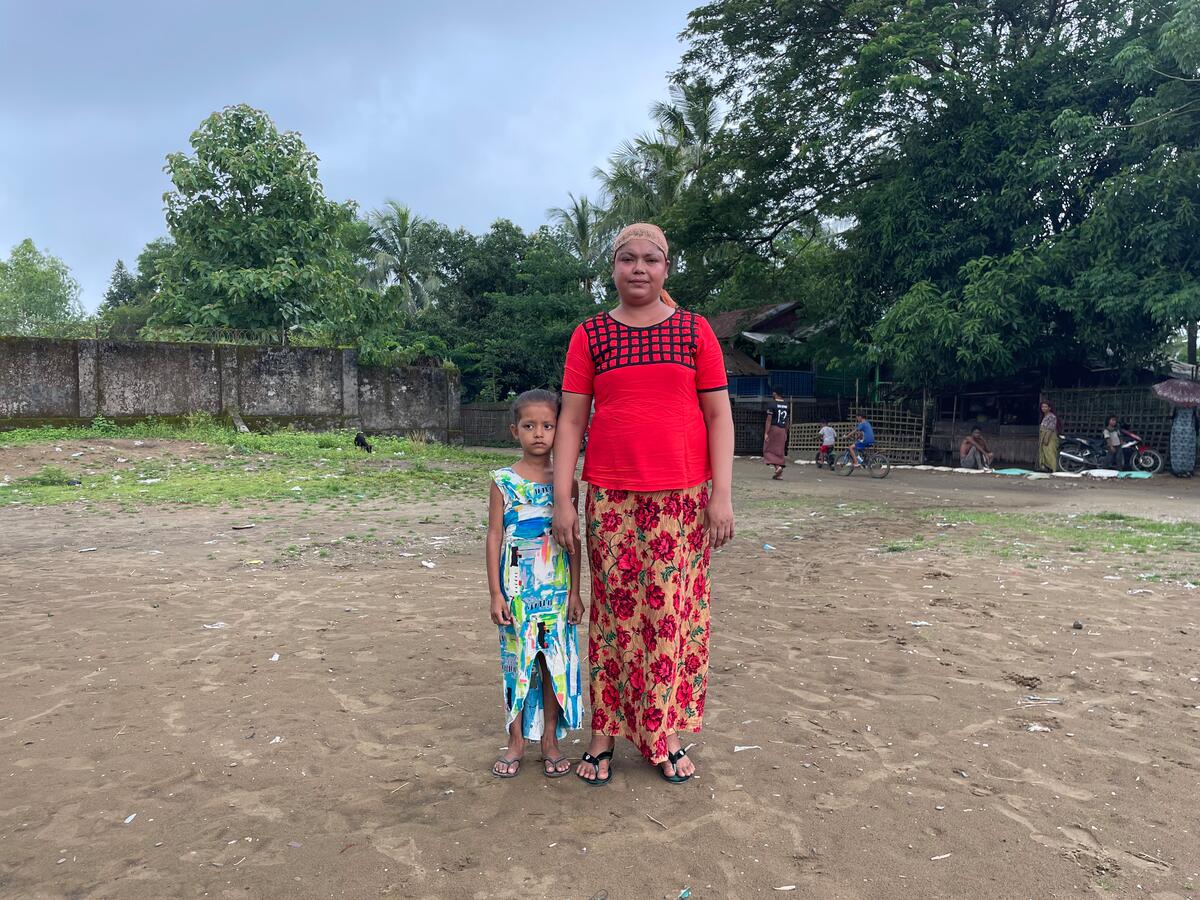Ending statelessness
Ending statelessness
UNHCR is working to end statelessness, while also protecting people who are currently stateless.

Asha proudly displays her daughter's birth certificate. This vital document establishes her daughter's Kenyan nationality, protecting her from being at risk of statelessness.
Stateless people may have difficulty accessing basic rights such as education, healthcare, employment and freedom of movement. Without these things, they can face a lifetime of obstacles and disappointment.
"Those who have been born or left stateless face a devastating legal limbo. Their lives are marked by exclusion, deprivation and marginalization."
Understanding statelessness
How does nationality work?
People usually acquire a nationality automatically at birth, either through their parents or the country in which they were born. Sometimes, however, a person must apply to become a national of a country.
How does someone become stateless?
Statelessness occurs when an individual is not recognized as a citizen by any country, including the country in which they, and perhaps generations of their family, were born.
If nationality laws are not carefully drafted, some people can fall through the cracks and be left stateless. Additionally, some countries' laws may intentionally exclude people from citizenship, discriminating against minority communities based on race or religion, or preventing mothers from passing their nationality to their children.
How is UNHCR working to end statelessness?
While statelessness is often viewed as a complex political issue, it can be solved with sufficient political will. Governments determine who their nationals are, making them responsible for the legal and policy reforms needed to address and end statelessness. UNHCR works with and supports governments to identify, reduce and prevent statelessness, while also protecting people who are currently stateless.
UN Conventions on Statelessness
There are two United Nations Conventions on Statelessness. They seek to protect stateless people and eliminate statelessness globally. UNHCR encourages States to accede to the conventions. By doing so, countries commit to protect stateless people and reduce statelessness within their countries and to bring their laws and policies in line with the provisions of the conventions.
Text and media 61
When we were told we were not Kenyans, it really hurt. Where were we to go? We were born and raised here; we knew no other home.
Rashid, a member of the Pemba community in Kenya, endured a lifetime of challenges due to being stateless. He could not open a bank account, marry his wife legally, or travel freely. Many families in his community also struggled to enroll their children in school because they lacked the necessary national birth certificates.
In 2023 Kenya recognized the Pemba as citizens of the country. For Rashid and his family, this was a life-changing moment. “I am grateful that my children will now have national IDs – they will be able to seek opportunities that will enable them to sustain themselves financially and they can access any part of the country just like any other Kenyan,” he says.
The #IBelong Campaign and the Global Alliance to End Statelessness
In 2014, UNHCR launched the #IBelong Campaign. This generated renewed commitment from States to end statelessness, resulting in greater progress over the past ten years than in previous decades, including:
- Half a million people granted citizenship as several countries resolved long-standing situations of statelessness
- A steady increase in the number of accessions to the 1954 and 1961 Statelessness Conventions
- Improved national laws to address statelessness in all regions.
However, despite ongoing efforts, statelessness remains a persistent issue. Fewer than half of UN member states are parties to both the statelessness conventions, and not all have fully incorporated these conventions into their domestic laws. As a result, children continue to be born without a nationality, and the world is significantly behind in meeting the Sustainable Development Goal of providing legal identity for all by 2030 (SDG 16.9).
In 2024, UNHCR will launch the Global Alliance to End Statelessness to build on the work of the #IBelong Campaign. The alliance will bring together member States, regional organizations, UN agencies, stateless-led organizations, civil society, faith leaders, academia and other partners who are committed to end statelessness. It aims to accelerate solutions through a multistakeholder approach which centres the experience of stateless people.
Documents and resources

The plan sets global objectives building on the momentum of the #IBelong campaign.

10 Actions which need to be undertaken to end statelessness by 2024.






